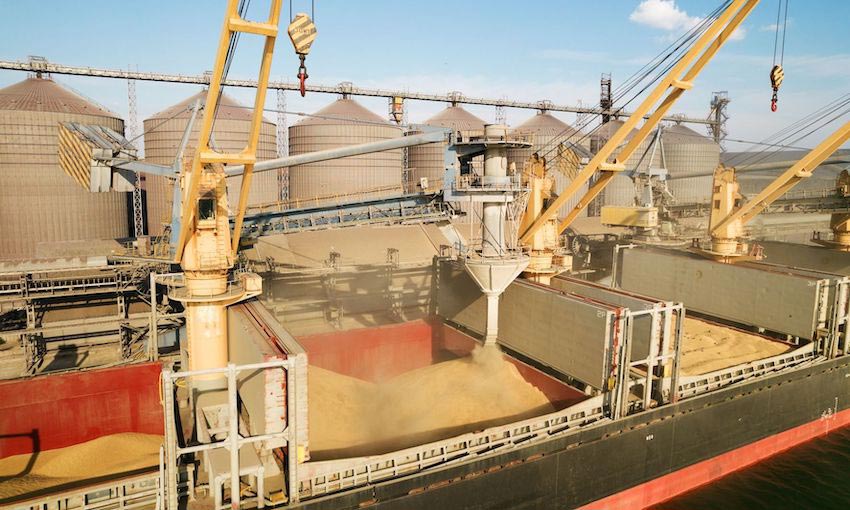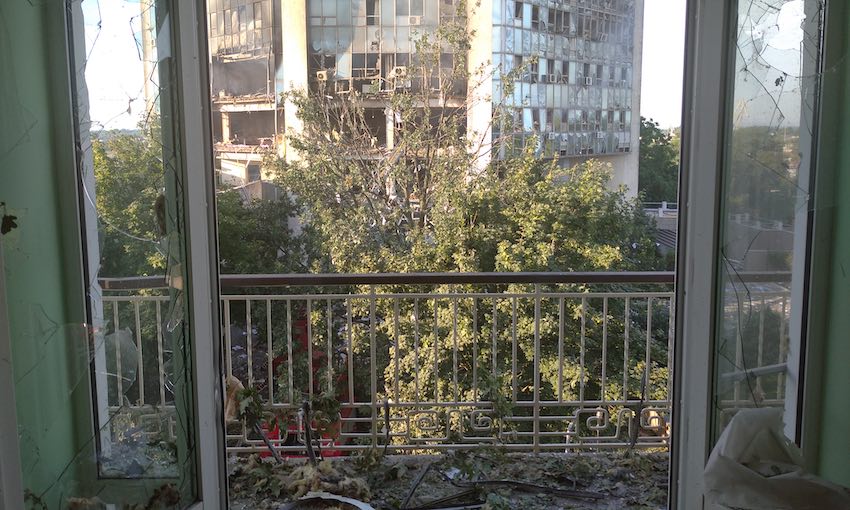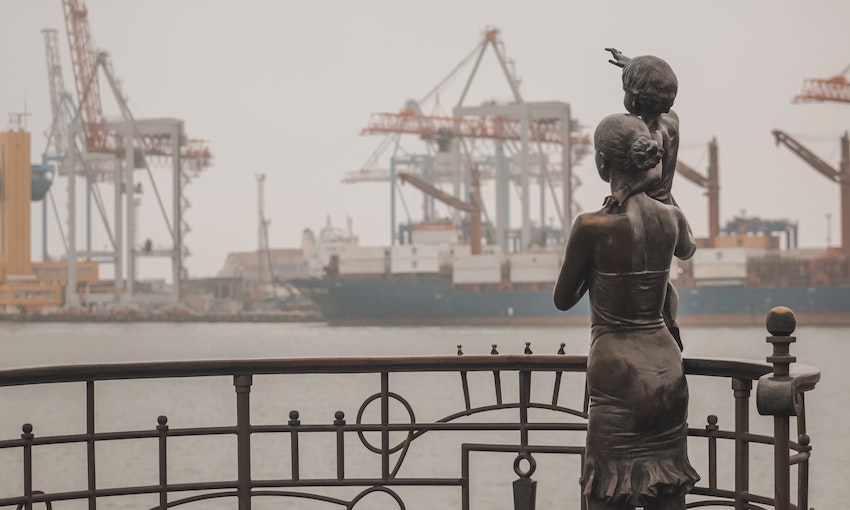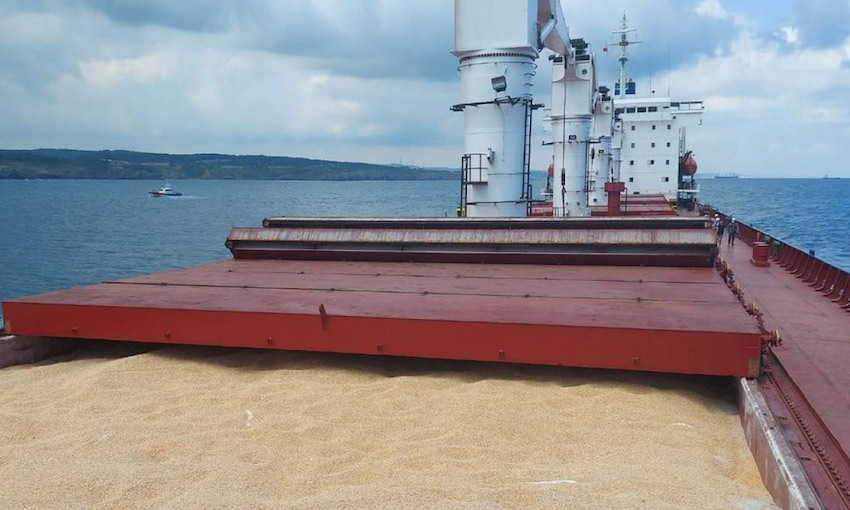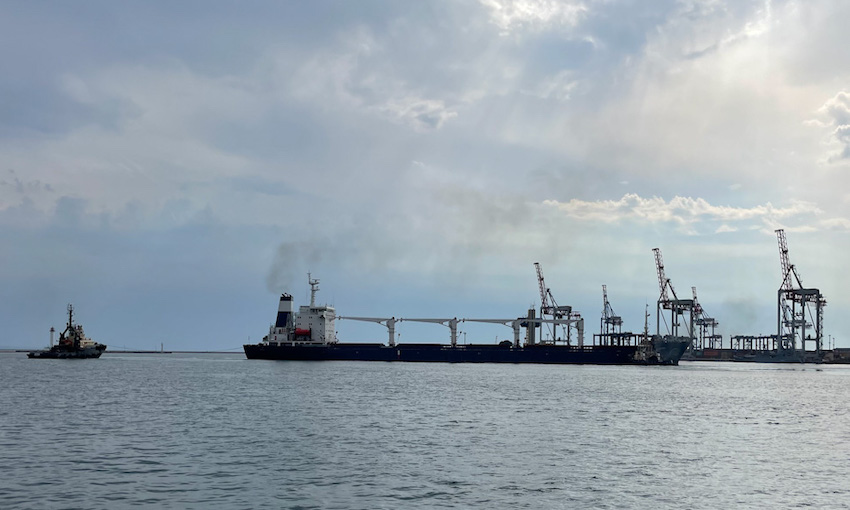THE INTERNATIONAL Chamber of Shipping has emphasised the cruciality of insurance and security arrangements as the Black Sea Grain Initiative comes into motion.
The initiative was signed in Turkey on 22 July, establishing a humanitarian maritime corridor allowing ships to transport grain out of Ukraine to ease the global food crisis.
Bulk carrier Razoni, the first ship to depart Ukraine carrying grain since the war began, sailed out of Odesa on Monday this week, bound for the Lebanese port of Tripoli.
The agreement, which Reuters describes as “a rare diplomatic breakthrough in a drawn-out war of attrition”, was welcomed by global humanitarian bodies and trade and maritime industries.
The ICS initially raised concerns around safe navigation in heavily mined waters and ensuring crew safety, but now suggests there is another layer of challenges to consider.
“The first movement is a big step, but continued focus on insurance and security arrangements will be critical in assuring the success of the initiative,” ICS said in a statement.
“The need for extra security measures to enforce the treaty was emphasised just a day after the agreement was signed, when Russian missiles hit the port of Odesa.”
As part of the Black Sea Grain Initiative, the Joint Coordination Centre was set up in Istanbul to develop operational procedures ensuring the safety of ships and crews operating in ports of Odesa, Chornormorsk and Yuzhne.
According to ICS, the JCC will require operators to register vessels, which will then be escorted through the humanitarian corridor in the Black Sea and guided through mine-free channels around the Ukrainian ports.
It said inbound vessels to Ukraine will be inspected for contraband and weapons near Turkish ports, while UK and Turkish delegates at Ukrainian ports monitor activity to ensure only grain and fertilisers are transported out of the country.
Supervision of vessels is integral to the safety of the initiative, as the United Nations considered unrestricted movement in the Black Sea unfeasible and estimated the clearing of mines would have taken more than four months.
“It’s not just a matter of whether there are ships available, they need to move safely,” UN under-secretary general for humanitarian affairs Martin Griffiths said.
“Without those procedures in place we cannot manage a safe passage of vessels.”
Further to security concerns, the ICS also noted the importance of commercial viability of the trade, and the availability of insurance for vessels and cargo transiting the corridor.
The Lloyds of London Joint War Committee reportedly invited underwriters to indicate whether they would support an initiative through a dedicated market facility or other means to provide insurance for grain and food cargo intended for shipment from Ukraine.
Reportedly, the facility was recognised as paramount in the recovery of supplies, and other underwriters have shown interested in providing similar facilities.
“Notably, there is market capacity for insurance for hull and war risks and, for those vessels alongside, cover should be available under existing terms,” ICS said.
“However, if there is an issue, shipowners are advised to discuss with their broker who will be able to source an alternative insurer.”
ICS also highlighted the cost of insurance as an element of concern, with increased risk having driven up premiums on cargo and vessel insurance, contributing to high transportation costs.
“Opening a grain corridor for vessels to trade safely and with insurance under the current circumstances in Ukraine is by any marker, a remarkable achievement,” ICS said.
“Insurance against losses and assurances of safety for vessels, cargo and crew will be critical to ensuring its effective operation.”

